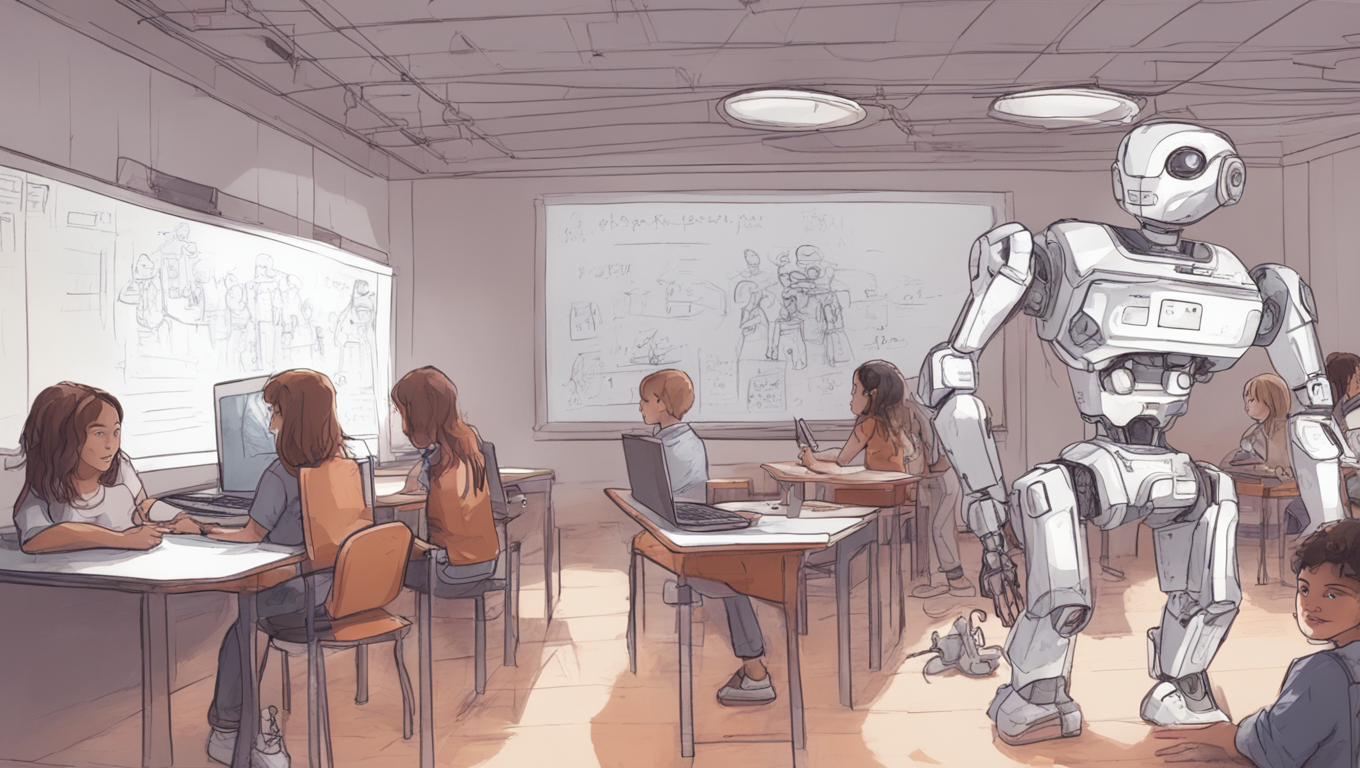In the bustling halls of Lakeside Primary School in Singapore, a group of fifth graders eagerly gathers around a trolley full of laptops. Today, they will embark on an exciting journey of learning mathematics through the power of artificial intelligence. The students slip on their headsets and prepare to set their own goals for the day’s lesson, guided by an AI system developed by Singapore’s Education Ministry.
The system, known as the Adaptive Learning System (ALS), is embedded in an online learning portal that allows students to choose their own difficulty level. The AI generates questions based on their previous learning data and other factors, ensuring that each student receives personalized instruction. For Lovelle Ng Bo Yee, an 11-year-old student at Lakeside, the ALS provides a source of motivation. “When we get the question wrong, it will give us an easier question,” she explains. “When I get it correct, it will give more challenging questions.”
Cynthia Goh, the school’s mathematics head, highlights the benefits of the ALS for both students and teachers. The system collects data on each student’s mastery of a new topic and compiles a report on their performance, saving teachers time on grading and providing valuable insights into students' areas of weakness. Goh, a veteran teacher with 23 years of experience, emphasizes the value of this individualized instruction. “I value this system because it gives us (teachers) enough feedback and we can cater to individual need,” she states.
However, Goh acknowledges that AI can never fully replace the role of a teacher. While the ALS plays a pivotal role in Lakeside’s math lessons, students only spend part of their weekly five-hour allocation using the AI system. The teacher’s presence is still necessary to observe and assist students when needed.
The use of AI in education is not unique to Singapore, as countries around the world recognize its potential to revolutionize the learning experience. In Asia, countries like South Korea, China, Hong Kong, and Taiwan have announced plans to incorporate AI in their education systems. Singapore’s Education Ministry is leading the charge by adopting AI for the teaching of math in public primary schools nationwide. The ministry’s vision is to achieve “technology-transformed learning, to prepare students for a technology-transformed world.”
The push for AI in education aligns with Singapore’s commitment to providing top-quality education. The country, lacking in natural resources, relies on attracting foreign companies for growth. Singapore’s outstanding performance in international tests, such as the Program for International Student Assessment, where it ranked first in mathematics, reading, and science among 81 economies, further underscores the nation’s dedication to educational excellence.
The adoption of AI in Singapore’s classrooms aims to support students with diverse learning needs and elevate the achievement levels of low-progress learners. By providing personalized instruction and addressing individual weaknesses, AI technology has the potential to bridge the gap in education and ensure that every student receives the support they need to thrive.
Chan Kok Hong, the head of the Information and Communications Technology department at Lakeside, recognizes that the use of AI in education must align with the national curriculum. He emphasizes the importance of teachers adapting their teaching approaches to incorporate AI effectively. As an IT educator for his fellow teachers, Chan understands that the definition of a teacher must evolve to keep up with the changing times. “It’s about continual professional development. We have to keep up with the times,” he asserts.
While the integration of AI in education brings numerous benefits, there are also concerns about its potential biases and impact on privacy, copyright, and other areas. Singapore has taken a cautious approach, emphasizing that AI tools like ChatGPT should only be used under the supervision of teachers. The country has released a draft governance framework for generative AI, focusing on fair treatment, transparency, and cybersecurity measures to protect sensitive educational data.
As educational institutions worldwide embrace the transformative power of AI, it is essential to develop guidelines and regulatory frameworks to address ethical implications and ensure a fair and secure learning environment for all students. With Singapore leading the way in AI-powered education, students like Lovelle Ng Bo Yee and her classmates are receiving a truly personalized learning experience that sets them up for success in a technology-transformed world.





Use the share button below if you liked it.